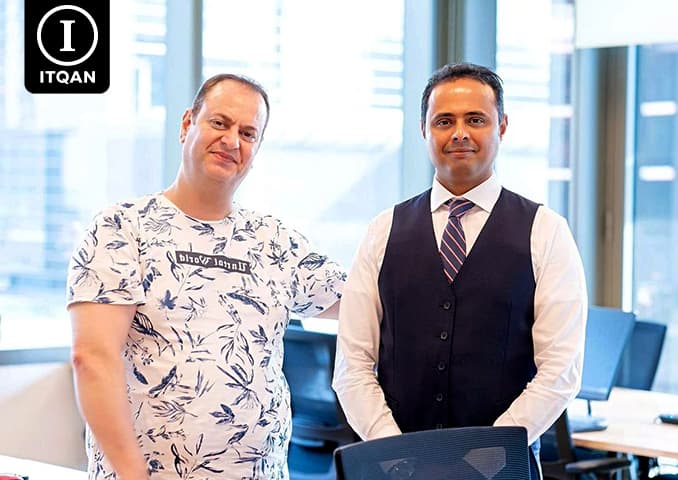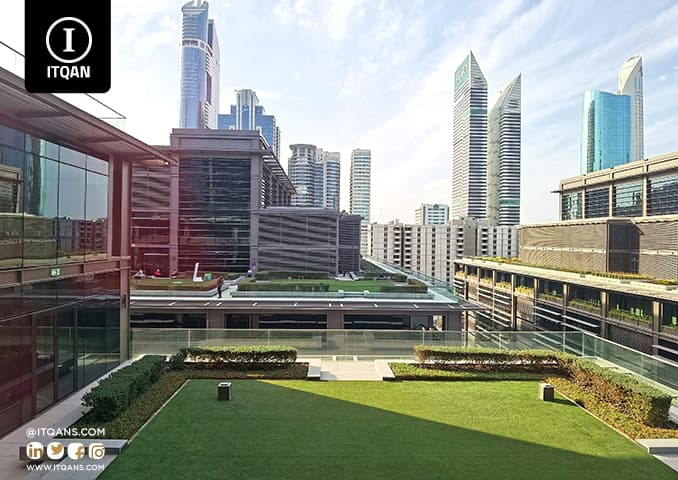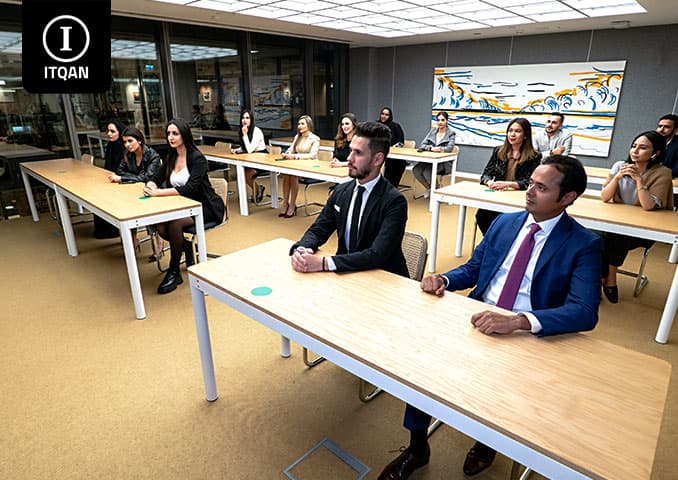The United Arab Emirates is witnessing rapid economic development, as it is considered one of the most prominent investment destinations in the world. Investor interest in investment projects in the Emirates is increasing as a result of the sustainable economic environment and the facilities provided by the government to encourage entrepreneurship. Investment projects in the Emirates include a wide range of economic sectors, ranging from real estate and infrastructure to renewable energy and technology. The investment market in the UAE provides national and international investors with access to a variety of opportunities, with a focus on achieving sustainable development and innovation. As investment projects in the UAE integrate with the government’s ambitious vision and economic strategies, investment is emerging as a key factor in promoting economic development and achieving diversification. The advanced investment environment and updated legislation allow those interested in investment projects in the UAE to access thriving local and regional markets.

جدول المحتوى
ToggleWhat are the investment projects in the Emirates?
The UAE offers many investment opportunities in various sectors. Here are some potential investment projects in the UAE:
- Real estate: There is an active real estate market in the Emirates, whether for housing or investment. You can consider real estate development projects, or investment in hotels and resorts.
- Renewable energy: The UAE encourages investment in renewable energy, such as solar and wind energy. Clean energy generation projects can be implemented.
- Technology and innovation: There is great scope for investment in the technology sector, whether in establishing technology companies or supporting startups and innovation.
- Marine industries: Projects related to marine industries, such as shipbuilding and marine manufacturing, may be considered.
- Food Industry: Investment in food and beverage industry projects, such as organic farms and food product manufacturing.
- Tourism and Hospitality: With the increase in tourism in the Emirates, consideration may be given to opening projects in the field of hotels, restaurants, and entertainment.
- Education and training: Investment opportunities can be explored in the areas of education and training, such as private schools or technical institutes.
- health care: There is an increasing demand for healthcare services, and hospital or medical clinic projects may be considered.
Investment procedures in the Emirates
Investment procedures in the UAE differ slightly depending on the type of investment and the sector to which it relates. However, the general steps that must be taken when starting the investment process in the UAE can be summarized as follows:
- Determine the type of investment: Determine the type of investment you want, whether it is real estate, industrial, commercial, or in the service sector. This helps guide next steps.
- Research and analysis: Conduct careful research on the specific investment market and business sector you are targeting. Analyze opportunities, challenges and local investment laws.
- financial planning: Develop a detailed financial plan that includes estimates of costs, expected returns, and the target time period to achieve a return on investment.
- Consultation with legal and financial specialists: Consult with local attorneys and financial experts to understand local laws and regulations and ensure full compliance with legal procedures.
- Establishing a company: If you are planning to establish a company, choose the appropriate company type (such as a local company or a free zone company) and complete the legal procedures for registration.
- Obtaining work licenses: Obtain the necessary licenses to start working, whether they are general business licenses or specific licenses for your investment activity.
- Obtaining residence permits: If you need to reside in the UAE to manage your investments, apply for the appropriate residence permits.
- Tax registration: Register with local tax authorities and check compliance with local tax controls.
- Open bank account: Open a bank account in a local bank, and make sure you meet all the necessary requirements.
- Insurance: Make sure to secure your business and investments by searching for appropriate insurance options.
- Launching work: After completing all previous procedures, you can start working on your project or investment.
Tax benefits available to investors in the UAE?
The United Arab Emirates has tax legislation that attracts investors, as some emirates such as Dubai and Abu Dhabi are considered tax-free zones or impose low taxes. Here are some of the tax benefits available to investors in the UAE:
- Free zones: There are many free zones in the Emirates, such as Jebel Ali Free Zone in Dubai and other areas, as these zones provide tax exemption to companies for a specific, renewable period.
- No personal income taxes: For the most part, the UAE does not impose taxes on personal income, including salary and profits earned from investments.
- Not charging corporate taxes: In some emirates, such as Dubai and Ras Al Khaimah, corporate taxes are not imposed on local companies.
- Tax Governance Agreements: The UAE has signed tax governance agreements with several countries to avoid excessive severity in taxation and avoid double taxation.
- Not imposing capital taxes: In general, the UAE does not impose taxes on capital or capital gains.
- Ease of currency conversion and bank transfers: Providing an advanced banking environment that helps investors facilitate practical transfers and manage their money.
Advantages of investing in the Emirates
Investing in the UAE has several advantages that make it one of the preferred investment destinations in the world. Here are some key features:
- Sustainable economic environment: The UAE has a strong and sustainable economic environment, where the focus is on enhancing economic diversification and achieving sustainable development in various sectors.
- Flexible legislation: The UAE is characterized by flexible and modern investment legislation that facilitates investment procedures and protects investors’ rights.
- Availability of advanced infrastructure: The UAE has an advanced infrastructure that includes transportation facilities, roads, ports, and airports, which contributes to improving access and facilitating transportation and trade operations.
- Political stability: The UAE enjoys high political stability, which enhances confidence among investors and contributes to a safe investment environment.
- Supportive government: The UAE government supports investment and encourages entrepreneurship by providing financial and tax facilities and incentives.
- Availability of a diverse workforce: The UAE has a diverse and multinational labor market, which provides investors with access to a qualified and multi-experienced workforce.
- A thriving real estate sector: The real estate market in the UAE is characterized by activity and innovation, as it provides various investment opportunities in residential and commercial projects.
- Technological innovation: The UAE seeks to achieve digital transformation and enhance innovation in the field of technology, which opens doors for investment in this sector.
- International interaction: The UAE is considered one of the centers of international trade, with a large presence of international companies, which enhances international interaction and opens global trade opportunities.
- Tourism and entertainment: The tourism and entertainment sector represents great opportunities for investment in the Emirates, as unique destinations and cultural and entertainment events attract visitors from all over the world.

Investment costs in the UAE
Investment costs in the UAE vary depending on the type of investment and the sector to which it relates. Here is an overview of some points that may affect investment costs:
- Company establishment costs: Company establishment costs vary depending on the type and geographical location you choose. These costs may include registration fees, licenses, legal and administrative consultations.
- Real estate costs: If the investment is related to real estate, costs will include the cost of purchasing or renting, real estate brokerage fees, maintenance, and government fees related to the real estate.
- Infrastructure costs: In some cases, investment projects may need to make modifications to infrastructure, such as constructing roads or expanding facilities, and this increases costs.
- Registration and license costs: Investment costs may include paying registration and licensing fees to the local government and regulatory authorities.
- Manpower costs: Manpower costs depend on the type of work and qualifications required. These costs may include salaries, benefits, and training costs if necessary.
- Marketing and advertising costs: To promote the investment project, you may need to invest in marketing and advertising campaigns, and this entails additional costs.
- Tax costs: Tax costs vary depending on the type of activity and local tax legislation. Make sure you understand your project’s tax liabilities.
- Insurance costs: Costs can include property, civil liability, and labor insurance, and vary depending on investment needs.
- Banking services costs: Investment operations may require opening bank accounts, and banking services costs may vary depending on the services required.
- R&D costs: If investment projects rely on innovation and development, R&D costs may include a significant portion of the cost.



